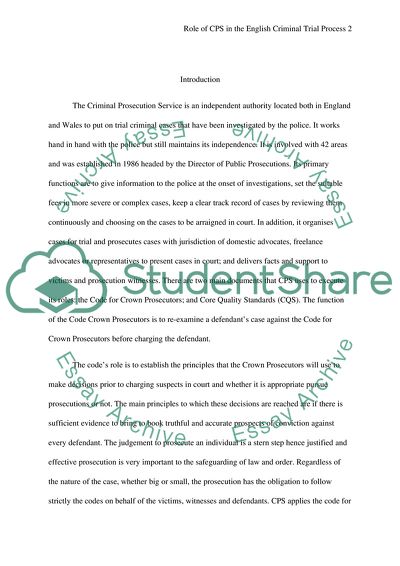Cite this document
(The Role of the Crown Prosecution Service Report, n.d.)
The Role of the Crown Prosecution Service Report. https://studentshare.org/law/1852138-critically-evaluate-the-role-of-the-crown-prosecution-service-cps-in-the-english-criminal-trial-process-how-successful-do-you-think-the-cps-has-proved-to-be
The Role of the Crown Prosecution Service Report. https://studentshare.org/law/1852138-critically-evaluate-the-role-of-the-crown-prosecution-service-cps-in-the-english-criminal-trial-process-how-successful-do-you-think-the-cps-has-proved-to-be
(The Role of the Crown Prosecution Service Report)
The Role of the Crown Prosecution Service Report. https://studentshare.org/law/1852138-critically-evaluate-the-role-of-the-crown-prosecution-service-cps-in-the-english-criminal-trial-process-how-successful-do-you-think-the-cps-has-proved-to-be.
The Role of the Crown Prosecution Service Report. https://studentshare.org/law/1852138-critically-evaluate-the-role-of-the-crown-prosecution-service-cps-in-the-english-criminal-trial-process-how-successful-do-you-think-the-cps-has-proved-to-be.
“The Role of the Crown Prosecution Service Report”. https://studentshare.org/law/1852138-critically-evaluate-the-role-of-the-crown-prosecution-service-cps-in-the-english-criminal-trial-process-how-successful-do-you-think-the-cps-has-proved-to-be.


